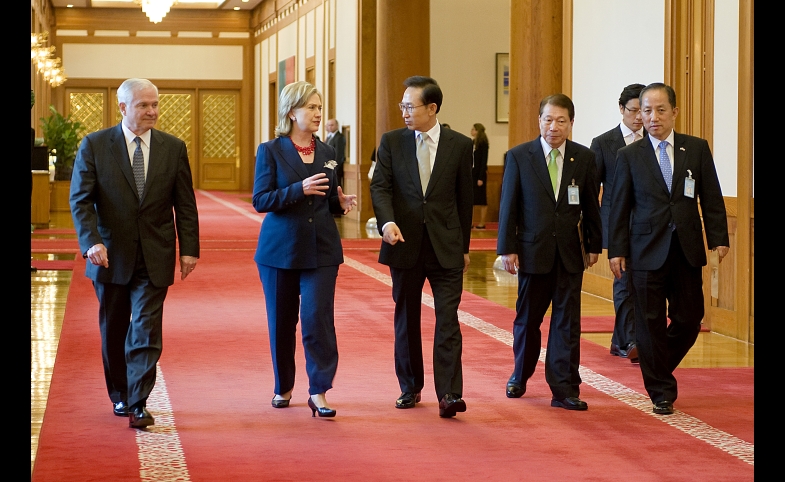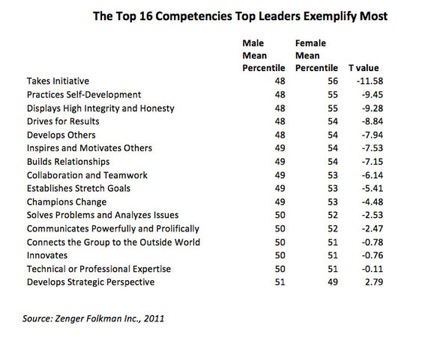The first 100+ days of the Trump Administration have engendered some new approaches to international relations, making this season of populist politics in the United States a confusing new chapter for diplomacy around the...
KEEP READINGThe CPD Blog is intended to stimulate dialog among scholars and practitioners from around the world in the public diplomacy sphere. The opinions represented here are the authors' own and do not necessarily reflect CPD's views. For blogger guidelines, click here.

XX Diplomacy—When Women Lead, the World Improves
The Madam Wears Pant Suits
I had just arrived in London, December 2008. I was jetlagged and exhausted but excited as I was due to attend a conference at Ditchley Park . Ditchley is a very special place for those fortunate enough to be invited to attend. Each year there are several intimate, invite-only seminars dedicated to international issues where attendees from all over the world – a mix of government and private sectors -- come together to deep think and vigorously debate key global issues of the day. The proceedings are then reported back to the UK Foreign Office. The sheer weight of history looms large at Ditchely where Churchill went before and during the Second World War to strategize with key advisors. It is always a privilege to be included in such gatherings and I was brimming with anticipation. I was greeted at the airport by a driver who would take me out to the grand estate, which is tucked away about an hour or so outside of London. That morning President Obama had announced his decision to appoint Hillary Clinton as Secretary of State. I remember being shocked by the announcement, as they had been such rivals during the election. I was also deeply impressed, as Hillary is known to be a “workhorse” from her time in the Senate and a sharp, take-no-prisoners negotiator, particularly on issues she is passionate about. I asked my driver what he thought of the appointment, thinking surely he might have a similar reaction to mine. He paused…took a deep sigh…and stated in a thick English accent, “The madam wears pant suits.” I was stunned. Of all the things that he could have said about her career and accomplishments, it all came down to the pant suits? Sensing my disappointment in his answer, he clarified, “The madam is no diplomat.” I am rarely, if ever, at a loss for words – as many of my friends and colleagues can attest – but in this moment I was completely and totally silenced by my shock. My brain fixated not only on his remarks but also on the wardrobe choices I had selected for this trip and clearly should have re-thought – no less than three pant suits and one formal evening pant suit. My pant suits aside, the conference at Ditchley was an inspiring and successful three days; however I did notice, as typically, that I was one of only a handful of women in a room filled with distinguished foreign policy and international affairs experts.
When Women Lead…the World Improves
That story has stayed with me as I’ve watched Secretary Clinton embrace her role as Secretary of State. Republicans and Democrats alike think highly of her efforts and work ethic. As she visits Latvia this week, she goes down in history as the most travelled Secretary of State, having visited 100 countries in her tenure. She is celebrated everywhere she goes for being an empathetic listener and a fully engaged diplomat. I was also reminded of this story recently when I read Anne-Marie Slaughter’s essay Why Women Can’t Have it All in The Atlantic. Slaughter was Secretary Clinton’s head of Policy Planning at State for two years before deciding to return to Princeton to better balance motherhood and her career. I have long admired Slaughter for being a leading, passionate voice in foreign policy and global issues writ large. Like Secretary Clinton, she not only talks the talk but walks the walk. And I’m almost certain on most days, she too wears pant suits. Slaughter’s essay unleashed a firestorm of commentary on the role of women in the workplace and, in particular, women in global careers. And though most focused on the issues she raised regarding parenting and work-life balance, several picked up on the lack of women in leadership roles throughout the international affairs arena.
Women in Leadership Positions
- In policy-related positions at think tanks, the academy, military officer corps, and the private sector… fewer than 30 percent of senior positions are held by women.
- Recent National Journal survey of “558 chief executives of trade associations, labor unions, interest groups, think tanks, and other nonprofits with a significant presence in Washington,” found that just 18 percent are women.
- [Women in government] represents a greater percentage than Fortune 500 companies; last month, female chief executives officers reached an all-time high of eighteen, or 3.6 percent overall.
- I have felt these statistics firsthand as I oftentimes am one of only a handful of women at senior foreign affairs and global issue events and forums. If I am invited to speak, I am routinely the lone female voice on the panel – particularly if we’re discussing cyber security, counter-terrorism, or global engagement issues – and not just here in the United States but everywhere I travel. For all that women have accomplished over the years and for all the shattered glass ceilings, in global careers and foreign policy positions there are still too few women. These statistics are all the more shocking given the reams of research on the positive, dramatic impact women have if they are in leadership positions. Dr. Amanda Nimon-Peters , an Australian born behavioral scientist whom I have worked with at the Hult International Business School in Dubai, outlines the impact women in leadership have on decision-making in a powerful speech she gives entitled, When Women Lead, the World Improves . She cites current research which suggests women in leadership roles – whether in families, communities, or private sector companies – make dramatic, lasting, and measurable improvements. In developing and developed nations, she shares that women in key decision-making roles increase economic growth and GDP. In companies, particularly when women serve on corporate boards, there is demonstrably higher returns on investment and capital, as well as higher revenues reported overall, irrespective of industry. Additionally, in research cited recently in a Harvard Business Review Blog Are Women Better Leaders than Men? , women rated higher than men in fully 12 out of 16 core competencies that go into outstanding leadership. There is also evidence to suggest that when women are part of a team, the group is more effective .

Enlisting an Army of Hillary Clintons and Anne-Marie Slaughters
All of which brings me back to the notion of why we need more women in diplomacy and global careers. I am encouraged to see more and more women in my Corporate Diplomacy courses at USC. They are pursuing Masters in Public Diplomacy and are passionate about making a difference in the world. I know they will and I am excited to see their careers progress – I just wish there were hundreds and thousands of them ready to go. It is also heartening to see more and more business schools offering courses to support women’s leadership. This July I am teaching a Women’s Leadership course at Hult’s Dubai campus which builds off a pilot program I worked with Dr. Nimon Peters on last fall, A Pocket MBA for Women Aspiring to Lead.
As Anne-Marie Slaughter noted in her Atlantic essay,
Only when women wield power in sufficient numbers will we create a society that genuinely works for all women. That will be a society that works for everyone.We know that when women lead, the world is a better place, which should embolden us all to focus on encouraging young women to aspire to leadership positions, especially those of international import. Given the myriad worldwide crises and conflicts that compound daily, we need an army of Hillary Clintons and Anne-Marie Slaughters preparing to take global leadership positions in the years to come. We must do everything we can to encourage, inspire, and engage young women in global careers and find ways to bring their voices to the table. And if they want to wear pant suits doing so, all the better.
Photo credit: Wikimedia
Visit CPD's Online Library
Explore CPD's vast online database featuring the latest books, articles, speeches and information on international organizations dedicated to public diplomacy.
POPULAR ARTICLES
-
January 20
-
January 2
-
December 15
-
December 17
-
December 17
Join the Conversation
Interested in contributing to the CPD Blog? We welcome your posts. Read our guidelines and find out how you can submit blogs and photo essays >.













